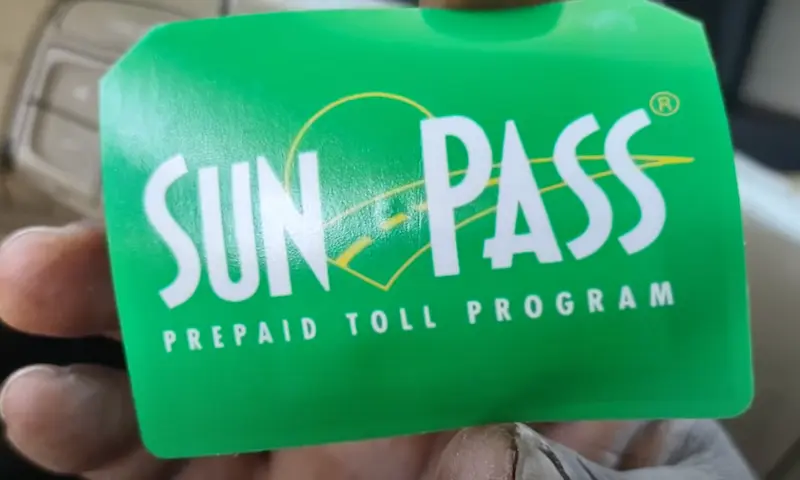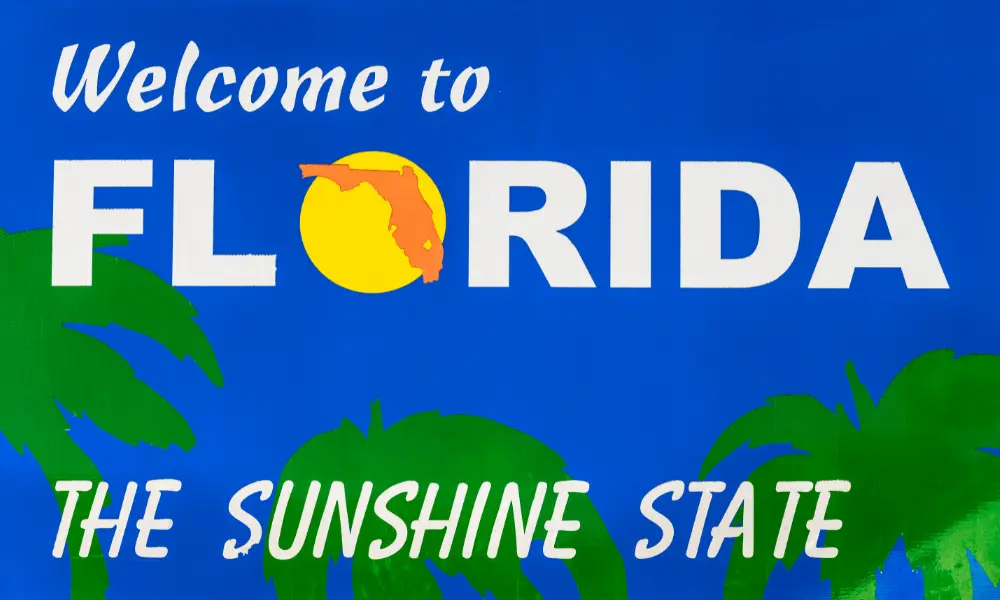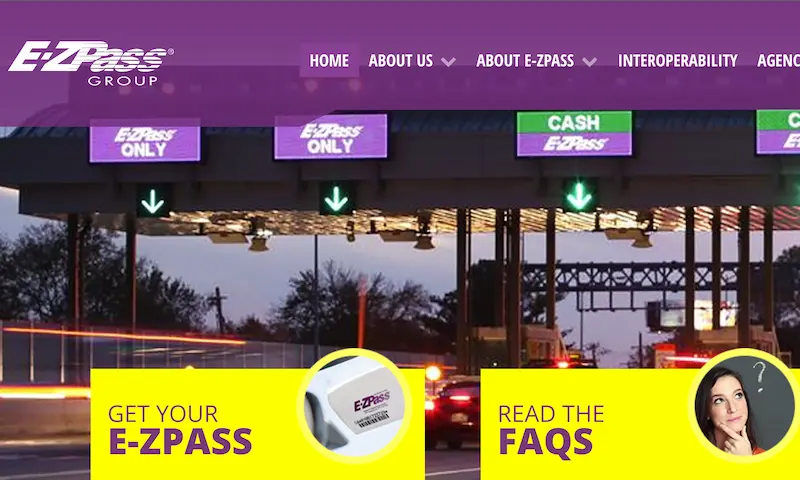Encountering a toll violation can be a stressful experience, but there might be options available to you for resolving these issues.
Many people aren’t aware that certain agencies offer forgiveness programs or ways to dispute charges.
Discovering the proper channels to address toll violations can potentially save you from hefty fines and ensure your future travels remain smooth.
Understanding Toll Violations
Navigating toll roads efficiently is essential, but errors can lead to toll violations.
Here, we’ll clarify what a toll violation entails, why they occur, and how they’re identified and notified.
Toll Enforcement Basics
Toll authorities are empowered to collect fees for your use of a particular roadway.
If you pass through a toll collection point without paying the required fee, you incur what is known as a toll violation.
These fees are often collected electronically as you drive, identified primarily by your vehicle’s license plate or a toll transponder.
Common Reasons for Violations
You might receive a violation notice for several reasons:
- Incorrect Toll Lane Use: Entering an express toll lane without proper authorization.
- Payment Evasion: Passing a toll without payment, by mistake, or due to lack of funds in your account if you use an automated payment method like tolls by mail or a transponder.
- Expired or Absent Transponder: Driving through a toll without a functioning toll tag or when your tag is not properly mounted.
License Plate Recognition and Violation Notices
Upon a toll violation, license plate recognition systems snap a photo of your vehicle’s plate.
You’ll then typically receive a violation notice by mail, which will include details such as the location and time of the violation, the amount due, and instructions on how to resolve the issue.
If you registered for tolls by mail, make sure your contact information is current so you receive these notices promptly.
Violation Notices and Disputes
When you receive a toll violation notice, understand that you have options.
You can read your notice carefully, initiate a dispute if you believe there’s a mistake, and keep track of the timeline to avoid additional penalties.
Reading Your Violation Notice
Your toll violation notice includes critical details like the violation number, date of the incident, and the location where the violation occurred.
Ensure you check the image or details against your records to confirm if you were indeed the driver in question.
Dispute Process
If the information doesn’t match your records, you may have grounds for a dispute.
Start by visiting the VA TOLL VIOLATION PROCESSING CENTER FAQS to understand the specific reasons you can appeal and the supporting documents you need.
You’ll typically fill out a dispute form or write a formal letter, articulating the problem and attaching any evidence, such as proof of payment if you have an E-ZPass.
Timeline for Responding to a Notice
Act swiftly once you’ve got a toll bill because violation notices come with a strict timeline for responses.
Dispute your violation as soon as possible, and well within the given time frame, to avoid additional fines or a potential hearing.
Resolution and Forgiveness Programs
Navigating toll violations can be tough, but fortunately, programs are available that offer ways to settle what you owe in a manageable fashion.
These programs can provide relief if you find yourself faced with toll fines, ensuring that the resolution process is fair and attainable.
Payment Plans and Settlements
If you have accumulated toll debt or violation penalties, payment plans can make the cost easier to handle by breaking it down into smaller, more manageable installments.
In some cases, agencies operating toll roads offer payment assistance plans specifically designed to aid low-income drivers.
Settlements are another option that may be available, which allow negotiating a sum less than the total amount owed to clear your debt completely.
First-Time Forgiveness
First-time forgiveness programs are a one-time courtesy to help you avoid heavy penalties and stress from a single mistake or oversight.
Certain toll agencies might waive violation penalties for first-time violators, offering you a clean slate.
This gesture of goodwill underscores the concept that everyone deserves a second chance, particularly if you’re usually diligent about toll payments.
Amnesty Programs for Violators
Last but certainly not least, amnesty programs serve as a proverbial olive branch for those burdened by overdue tolls and penalties.
These programs might forgive fines that have already been escalated to debt collectors, effectively reducing the financial load.
Amnesty initiatives are typically time-sensitive, so you’ll want to take advantage of them as soon as possible to ensure fair treatment and peace of mind.
Tools to Prevent Future Violations
To effectively manage and avoid future toll violations, it’s essential to stay informed about the systems in place.
From electronic toll collection devices to updating your vehicle information, leveraging these tools can help keep you on the right side of tollway regulations.
Transponders and Electronic Passes
Using a transponder, such as E-ZPass, can simplify your toll-paying process.
This device is usually mounted on your windshield and automatically charges tolls to a pre-established account as you pass through toll stations.
It’s crucial to ensure your E-ZPass account is adequately funded to avoid penalties.
- Check Account Balance: Regularly check your account to avoid low balance that can lead to violations.
- Proper Mounting: Ensure your transponder is mounted correctly for it to be read at tolls.
Tolls by Mail and Online Systems
Tolls by Mail systems allow you to pay tolls after using a toll road, via mailed invoice.
Too often, missed mail results in penalties. To counteract this, always keep an eye out for toll notices, or better yet, use the online systems to check for and pay any unpaid tolls proactively.
- Online Payment: Visit the tolling authority’s website to pay any tolls before penalties are incurred.
- Mail Alerts: Monitor your mail closely if you expect a toll invoice to arrive.
Updating Vehicle and License Plate Information
Keeping your vehicle registration and license plate number current is imperative for accurate billing, especially when using tolls by mail services.
An outdated address can mean missed invoices and subsequent violation fees.
- Update Personal Information: Promptly update any changes in your vehicle or personal information with the DMV.
- License Plate Linking: Ensure your license plate number is linked to your transponder account for smooth processing.
Legal Consequences and Penalties
When you receive a toll violation, there are immediate concerns and potential long-term repercussions.
It’s not only about paying a fine but also about understanding how non-payment can affect your driving privileges and vehicle registration.
DMV and Court Involvement
Your state’s Department of Motor Vehicles (DMV) could become involved if toll violations are left unpaid.
You might find your vehicle registration held until outstanding tolls and penalties are paid.
In some cases, the issue can escalate to the court, potentially resulting in additional fines or even a summons to appear before a judge.
Long-Term Impacts on Driving Records
Unpaid tolls may leave a mark on your driving record, which can affect more than just your immediate driving privileges.
Depending on your state, accruing a certain number of violations could lead to points being added to your license, higher insurance premiums, or even suspension of your driver’s license.
Avoiding Escalated Charges
Prompt attention to toll violations is your best strategy to prevent escalated charges.
Don’t let a simple oversight turn into a heavy financial burden or legal trouble.
You often have a grace period in which you can settle the original toll fee before any additional penalties are applied, helping you to keep your driving record clean.
Conclusion
You’ve navigated the complexities of toll violations and have seen that sometimes, mistakes and oversights can lead to hefty fines. It’s heartening to know that initiatives for tolerance and forgiveness are in place to alleviate the financial burden imposed by toll penalties.
These programs underscore a recognition that everyone can make an error and that the consequences shouldn’t be disproportionately punitive.
Toll Amnesty Programs: States occasionally offer them, which allow you to clear outstanding toll violations under more forgiving terms. For instance, during a set period, civil penalties may be waived as long as the original tolls and a small fee are paid.
Toll Penalty Reduction: Some settlement agreements ensure penalties are reduced to a more manageable amount. This approach can provide significant relief, as seen in situations where toll penalty forgiveness reached up to $40 million. Always stay informed about available options for toll penalty resolution.
Keep an eye out for amnesty programs, and be proactive in reaching out to relevant authorities if you find yourself facing penalties that seem steep as a result of crossing toll roads.
Remember, your actions can help maintain your financial well-being while keeping you in good standing as a responsible driver.
















